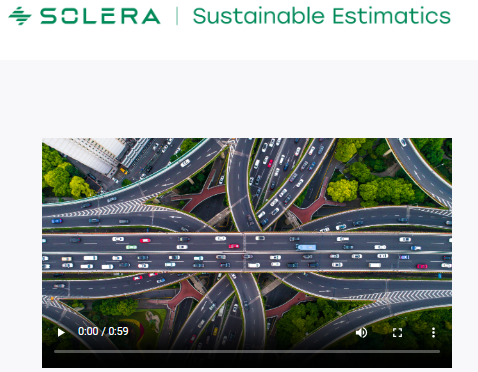
A global leader in vehicle lifecycle management and claims, Solera has launched an industry-first carbon tracking tool enabling Australian insurers to track and offset the carbon emissions lined to the end-to-end customer’s claims process.
The Sustainable Estimatics tool is designed to address the urgent sustainability demands facing insurers.
Solera research shows 99% of insurers recognise that prioritising sustainability metrics is important, yet they face numerous challenges implementing this, almost a quarter of insurers struggle with limited access to vehicle emissions data while a similar number lack the necessary analytics skills to make informed decisions regarding their claims data and sustainability, and only 53% of auto insurers measure scope 3 emissions.
A global survey of 10,000 drivers (including from Australia) reveals 75% are prepared to switch providers for a greener policy, while insurers struggle to meet demands and new regulation.
About 14 leading insurers globally are committed to transition their insurance and reinsurance underwriting portfolios to net-zero greenhouse gas (GHG) emissions by 2050.
This comes amid APRA findings that Australian financial institutions’ monitoring of risk metrics, such as Scope 3 emissions, are becoming increasingly important for investors and other stakeholders.
“With one of the world’s largest AI-powered claims databases, we’re excited to introduce ‘Sustainable Estimatics’ to the Australian market,” says Solera APAC managing director Chris Iacovou.
“This innovative tool is designed to address the urgent sustainability demands facing insurers, not merely as a compliance checkbox but as a way to help them provide customers with more competitive, green premiums.”
Solera ESG committee executive chair Jing Liao says the insurance and automotive sectors are witnessing a significant surge in demand for eco-friendly practices.
“Our research reveals data is an obstacle to moving forward with sustainability efforts.
“In short, reducing your carbon emissions won’t be possible if you don’t understand them in the first place,” Liao explains.
“It’s clear Insurance providers worldwide need effective solutions for better claims data management and emissions reduction.”
One of the most challenging sustainability metrics to monitor is Scope 3 emissions. This includes indirect emissions occurring in the organisation’s value chain – for example, those produced by policyholders’ vehicle repairs.
Zurich Insurance group chief claims officer Ian Thompson says the ability to measure the CO2 impact of any claims settlement will be an essential requirement for companies.
Sustainability is now a required regulation for businesses, evidenced by the EU Corporate Sustainability Reporting Directive (CSRD) taking effect in the 2024 financial year.
CSRD applies to large companies in Europe, including Australian-based businesses listed on EU-regulated markets, requiring them to report on the environmental and social impact of their corporate activities, including audit obligations.
The answers from the insurers of countries in our report, show that despite the fact that CSRD regulations are in to be in place soon in Europe, six in ten (61%) don’t consider their business to be “very well prepared” for them.
On the global sustainability reporting front, Asia-Pacific’s leading 100 companies are setting the standard, with 89% of them disclosing information, marking a 40% increase compared to a decade ago.
Solera says there are other solutions and services in its portfolio connected to sustainability which allow businesses to make greener decisions.
“For example, Solera promotes the use of eco-friendly parts, encourages repairs over replacements, and reduces unnecessary displacements through our visual AI tools and various fleet and repairs solutions.”








